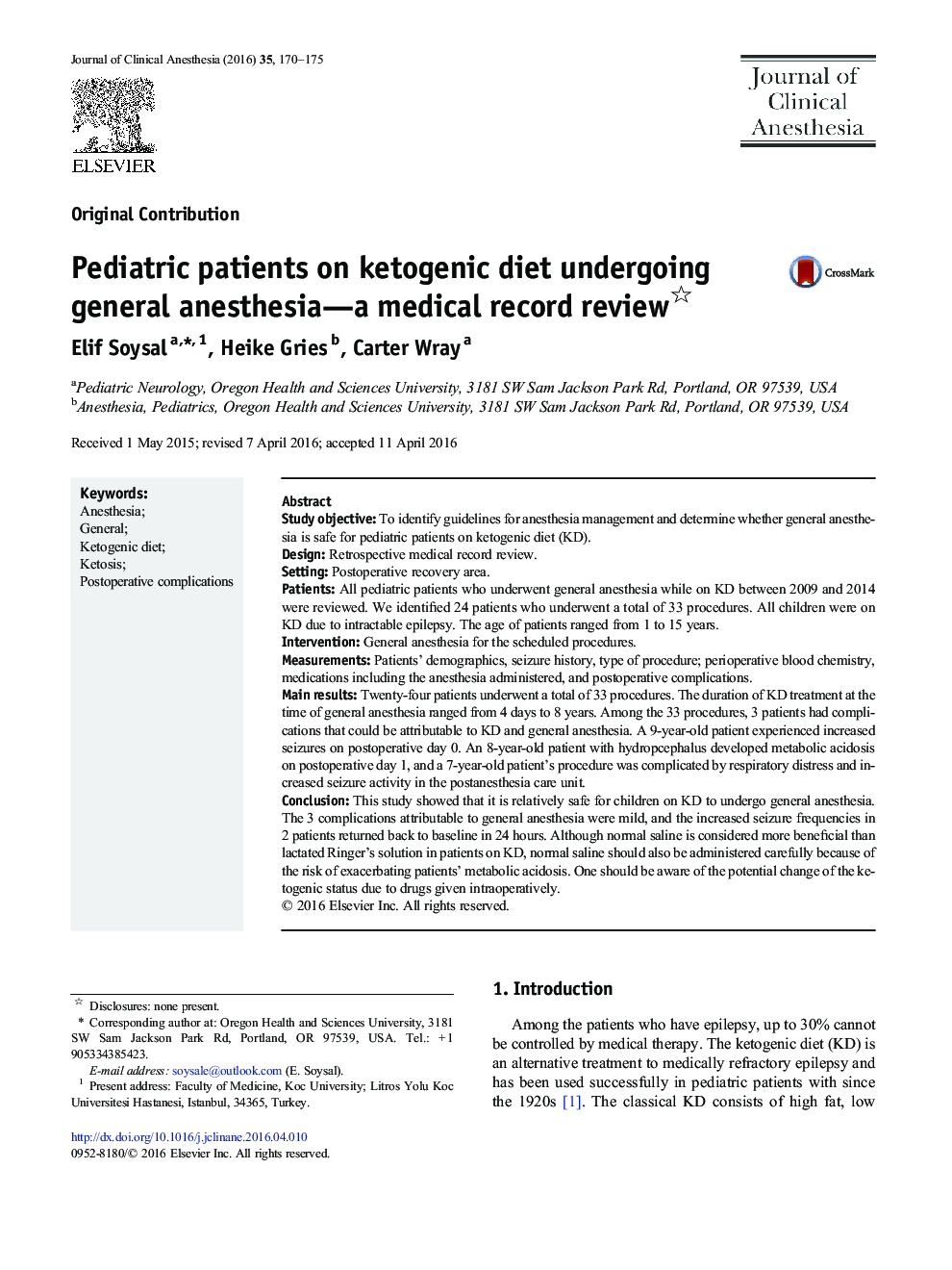| Article ID | Journal | Published Year | Pages | File Type |
|---|---|---|---|---|
| 5884282 | Journal of Clinical Anesthesia | 2016 | 6 Pages |
â¢It is relatively safe to administer GA to patients on KD.â¢Using NS might precipitate metabolic acidosis.â¢A reminder about which drugs will interfere with ketosis in the record is useful.
Study objectiveTo identify guidelines for anesthesia management and determine whether general anesthesia is safe for pediatric patients on ketogenic diet (KD).DesignRetrospective medical record review.SettingPostoperative recovery area.PatientsAll pediatric patients who underwent general anesthesia while on KD between 2009 and 2014 were reviewed. We identified 24 patients who underwent a total of 33 procedures. All children were on KD due to intractable epilepsy. The age of patients ranged from 1 to 15 years.InterventionGeneral anesthesia for the scheduled procedures.MeasurementsPatients' demographics, seizure history, type of procedure; perioperative blood chemistry, medications including the anesthesia administered, and postoperative complications.Main resultsTwenty-four patients underwent a total of 33 procedures. The duration of KD treatment at the time of general anesthesia ranged from 4 days to 8 years. Among the 33 procedures, 3 patients had complications that could be attributable to KD and general anesthesia. A 9-year-old patient experienced increased seizures on postoperative day 0. An 8-year-old patient with hydropcephalus developed metabolic acidosis on postoperative day 1, and a 7-year-old patient's procedure was complicated by respiratory distress and increased seizure activity in the postanesthesia care unit.ConclusionThis study showed that it is relatively safe for children on KD to undergo general anesthesia. The 3 complications attributable to general anesthesia were mild, and the increased seizure frequencies in 2 patients returned back to baseline in 24 hours. Although normal saline is considered more beneficial than lactated Ringer's solution in patients on KD, normal saline should also be administered carefully because of the risk of exacerbating patients' metabolic acidosis. One should be aware of the potential change of the ketogenic status due to drugs given intraoperatively.
